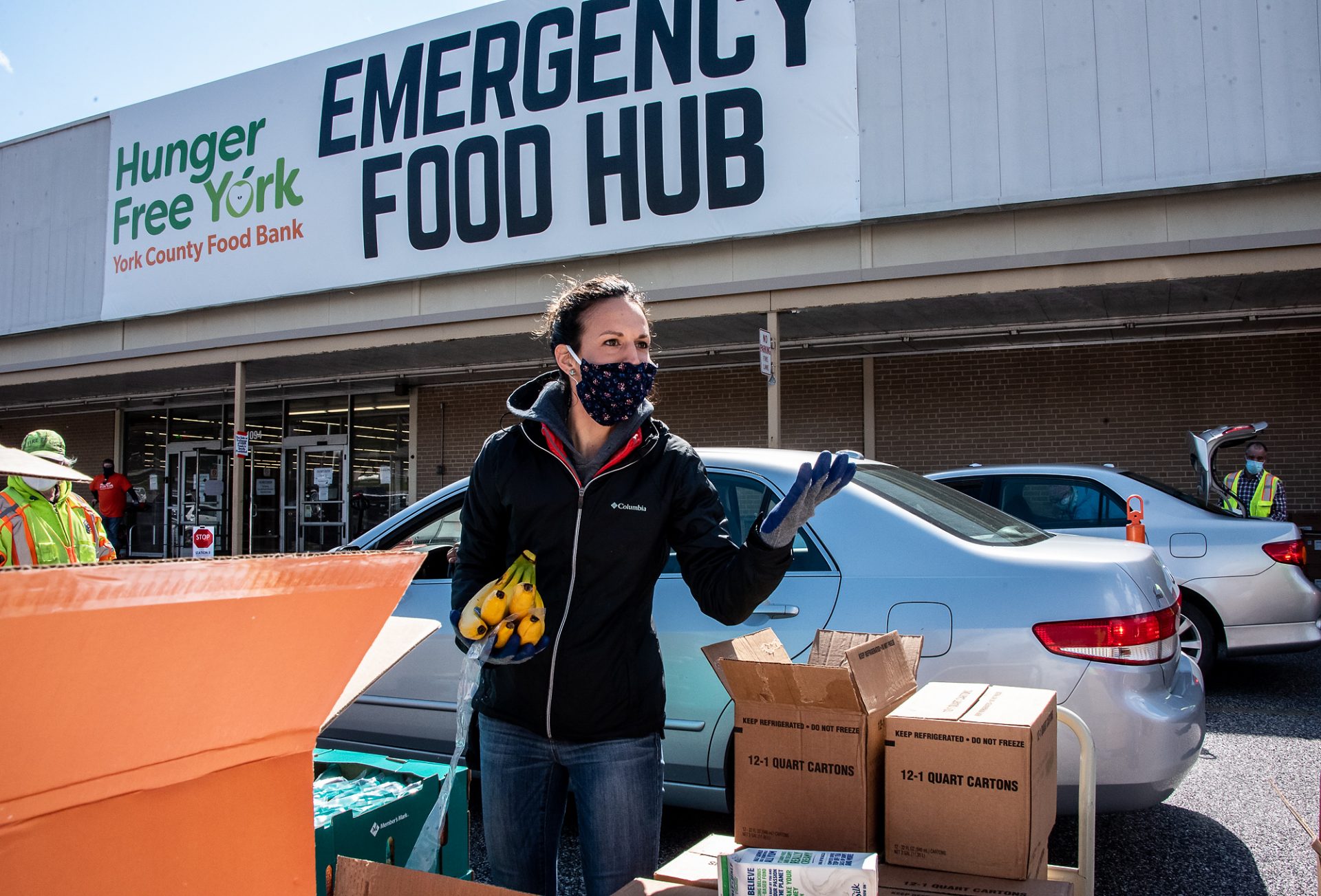
Volunteers from Highmark sort apples on the "Green Machine" at the Central Pennsylvania Food Bank.
Rachel McDevitt / WITF

Volunteers from Highmark sort apples on the "Green Machine" at the Central Pennsylvania Food Bank.
Rachel McDevitt / WITF

Rachel McDevitt / WITF
Volunteers from Highmark sort apples on the "Green Machine" at the Central Pennsylvania Food Bank.
(Harrisburg) — State programs that help Pennsylvania counties buy and distribute food to low-income families and seniors are getting a boost in the state’s new budget.
The State Food Purchase Program hadn’t seen an increase in about 15 years, said Sheila Christopher, executive director for Hunger-Free Pennsylvania. But it will get $20.188 million — $2 million more than last year.
A program that reimburses farmers for labor to harvest, package and process surplus food will get a $1 million boost for a total of $2.5 million. The Pennsylvania Agricultural Surplus System sends that to charitable food distributors, who then allocate it to help low-income Pennsylvanians across the state.
Jane Clements, executive director of Feeding Pennsylvania, said they’ll be able to work with more farmers and get more surplus food.
“There are 53,000 farms in Pennsylvania,” she said. “No one in Pennsylvania should be without food and there is a lot of food waste.”

Courtesy of York County Food Bank
A volunteer helps prepare food boxes at a distribution event in York County.
The COVID-19 pandemic left thousands of people without paychecks. During the first months of the pandemic, food banks saw an influx of people seeking help. Roughly 4 in 10 were doing so for the first time, according to Feeding America. In Pennsylvania, the number of people served by food banks totaled 29.6 million in 2020, compared to 13.3 million in 2019.
Christopher gathers data from Pennsylvania food banks. She says that between June 2020 and June 2021, there has been a 24 percent increase in the number of people requesting food assistance, but the amount of food that’s available has gone down 44 percent.
“While people are returning to employment, they’re still underemployed, and maybe not receiving the same salary they were prior,” Clements said. “So we’re still seeing that the increase in need is pretty level and we really feel like we may see that as we continue throughout the next year or so. “
Anti-hunger organizations lobbied for more funding for the two food programs in order to adjust for inflation and rising transportation costs. According to a 2020 report from Hunger-Free Pennsylvania, the state food purchase program should be funded at $24 million to adjust for inflation.
“Our plan is to build upon this success and to really show lawmakers that we will put that money to good use, and be good stewards of it,” Christopher said. “With all this education we’ve gotten over the last year about food insecurity, we hope our lawmakers will see that it’s not just a pandemic issue.”
Gabriela Martínez is part of the “Report for America” program — a national service effort that places journalists in newsrooms across the country to report on under-covered topics and communities.
The days of journalism’s one-way street of simply producing stories for the public have long been over. Now, it’s time to find better ways to interact with you and ensure we meet your high standards of what a credible media organization should be.